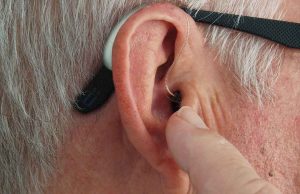
- The majority of individuals who have a mental illness do not seek or receive treatment.
- While there are multiple reasons why, one is the fact that people avoid or forego mental health treatment, due to judgment, doubt, pride, fear, misinformation.
- Individuals fear judgment, change, the unknown, and what they might discover in therapy; additionally, they’re too prideful to admit they need help.
- Additionally, some people doubt the efficacy of mental health treatment: they’re uncertain it will work and don’t believe it’s worth a try.
- Finally, others are completely misinformed about therapy—they don’t understand the process and are unsure how their therapist or counselor will view them.
According to the National Institute of Mental Health, one in five US adults is living with a mental illness right now. Yet, more than half of these individuals are not undergoing treatment. Why?
This statistic accounts in part for those who lack access to mental health services—but this doesn’t provide a comprehensive explanation, especially considering that more Americans have access to mental health services today than they have in the past. As it turns out, many people actually avoid or forego mental health treatment, due to judgment, doubt, pride, and other factors:
1. Judgment
Lindsay Raffaele, IIN Certified Holistic Health and Nutrition Coach, and Founder of Finely Nourished, says that a huge roadblock for those who need mental health treatment is being judged by others—more specifically, being seen as weak. “I think that in this day and age, our society is so focused on bigger, better, faster, stronger, that unfortunately, something like seeking help for mental health issues can be perceived as being weak,” she explains. “I say ‘perceived’ because typically, this is the story that we tell ourselves, it’s not fact or even necessarily real. Once we create space for a more positive mindset, we see a lot of their other concerns fall into place. At the end of the day, seeking help for mental health issues, or any health issue for that matter, should never be seen as weak—it’s actually quite the opposite. It’s a proactive measure to a better life.”
2. Doubt
Another obstacle that prevents people from seeking mental health care is their doubt that it will work, often based on bad experiences they’ve heard about. “As an anxiety disorder specialist, I practice a specific type of therapy called cognitive behavioral therapy (CBT) because CBT has been shown to be an effective treatment whereas traditional talk therapy has not. Unfortunately, some people have had negative experiences with the mental health care system in that they (or someone they knew) attempted treatment with providers who were either not familiar with or not using the appropriate evidence-based treatment for that particular disorder,” Ashley Smith, PhD, a licensed psychologist, explains. “If all you have heard is that therapy doesn’t work, why would you give it a shot?”
3. Pride
Sometimes pride poses an interesting challenge as well, in that people have a hard time admitting they need help and surrendering to the treatment process. “Sometimes people think that they should be able to solve their problems without any input from a professional,” Lisa Larsen, PsyD, licensed psychologist, explains. “There is a stigma against mental illness and many people don’t want to be considered mentally ill, even though ironically if they’re suffering, the therapy could make them less mentally ill. Other people fear that looking at events from the past will be painful and upsetting, which is sometimes true. Again, however, it seems more logical and healthy to address the past events so they don’t keep having a negative influence on their lives rather than continue to repress or deny the events.”
4. Fear
Another primary reason people avoid therapy is the fear they harbor: “Fear of change, fear of the unknown, fear that they may outgrow their friends, family, and loved ones,” as explained by Therapist Sarah Thacker. “People also seem to be very afraid of feeling their feelings and of being judged. Vulnerability is hard, and therapy by nature requires being open, honest, and vulnerable, which does not come naturally for so many. Once people find therapy to be an accepting, safe place where they can open up at their own pace, they find it to be the best thing that they have ever experienced. They feel as though the growth, comfort, and ease that therapy can create opens them up to truly being their best self.”
5. Misinformation
And, finally, people forego mental health treatment because they’re misinformed about what it involves and how they’ll be perceived by their therapist. “Having been a therapist for several years, I have come across many individuals who are hesitant to engage in treatment. More often than not, people are misinformed about what therapy actually is,” Robyn Gold, licensed clinical social worker, explains. “Many individuals have developed the belief that if they attend therapy, it means they’re crazy, which is simply just not true. I think this perspective is likely a result of how the media portrays mental health professionals.”
Let’s keep in touch! Sign up to receive our newsletter:
Start a Relationship with An Exceptional Counselor
- Skilled and caring professional counselors
- Accepting all major and most insurances
- High-touch customer service & premium benefits
- Same- or next-day appointments
- Ultra-flexible 23.5hr cancellations













